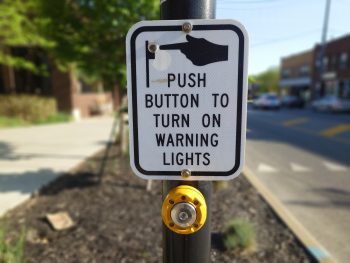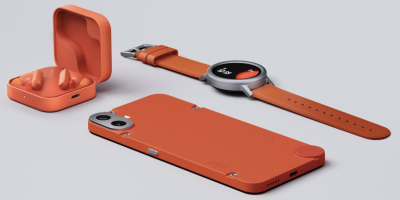Author Note: This feature discusses the impact of mental health and suicide in both the author’s and the author’s life. Readers’ discretion is advised.
The modern world has brought us many conveniences, one of which is the ability to stay connected with others 24/7 through technology. But while staying connected has its benefits, it’s also important to disconnect and focus on our mental health. Grief and suicide are difficult topics to discuss, but they highlight the importance of taking care of our mental well-being and disconnecting from technology. For Mental Health Month, it feels like a good time to bring up this difficult subject. It also comes at an important time to me, as I found out this month that I lost a friend through suicide.
Technology has become an integral part of our daily lives. We use it for work, entertainment, and communication. In fact, it’s how we get all the information on subjects we’re all passionate about. However, it’s essential to remember that technology can be a double-edged sword. It can bring us closer together, but it can also take a toll on our mental health. We can use it, as most do, as a sword that we can wield for ourselves or for others. Being an advocate for the health of all forms, I too know what it’s like to be impacted by technology and its ability to bring us together as well as divide us.
According to a study by the Pew Research Center, over half of Americans say that technology has a mostly negative effect on their mental health. While technology can be useful, it can also lead to feelings of anxiety, stress, and depression. It’s important to take breaks from technology and disconnect from our devices to maintain our mental health.
Suicide is a tragedy that affects many people. It’s important to remember that suicide prevention is everyone’s responsibility. If you or someone you know is struggling with suicidal thoughts or behavior, it’s important to not dismiss those feelings and to get help as soon as possible. There are many resources available, including crisis hotlines, your own family doctor as well as dedicated mental health professionals. Taking the step to engage with counseling or reaching out to get help is essential. My friend that I lost did and fought valiantly against it until the bitter end.
Her name was Lisa, and I’ll miss her endlessly. She and I suffered from the same sort of disease, which is one of the mind. I have schizophrenia and she had a long-term diagnosis of depression. We both shared issues with eating and other disorders around irregular eating. She spoke openly and eloquently about the impact the disease had on her mind and the people around her. She leaves behind her personal legacy as a fierce advocate of all she came into contact with. She never looked down or was unwilling to help someone in need. She was just that sort of person. She also has two beautiful children and a wonderful husband to attest to that strength and fearlessness to whom she loved and was fiercely devoted. However, due to the ongoing crisis of mental health, she was years waiting in the Irish Public Health system for the care she couldn’t get access to. She was a natural speaker on the topic. She would never shy away from something that she knew she must speak about. If you want to listen to her, and her experiences you can listen to her story here.
I know that if hearing her story helps one person to seek their own help, then this was worth it. So, this is an appeal from us both. From Lisa and I. If you are suffering, you need not do it alone. You are loved and there is hope. Don’t let your brain lie to you.

Grief is a natural response to loss, and it can affect people in different ways. In today’s world, where technology has made it easier to stay connected, it’s important to remember that there’s no substitute for face-to-face human connection. While technology can be a valuable tool for staying in touch with loved ones, it can also make it harder to disconnect and grieve. By the time you’re reading this – I’m most likely going to be on a plane heading to the people who I have in my life to tell them that I love them and that they matter.
Taking care of our mental health is essential, and it’s important to disconnect from technology to do so. While technology can be useful, it can also take a toll on our mental well-being. Grief and suicide are difficult topics to discuss, but they highlight the importance of taking care of our mental health and seeking help when needed. Remember, it’s okay to take a break from technology and prioritize your mental health. So, go make that trip to see your friends on the other side of the state. Do what I’m doing and go to another continent to make sure the people I love know that I love them. That life wouldn’t be the same without them. Unfortunately, we often don’t get to say the things we need to before life or other circumstances take that choice away from us.
For those who want to connect and are looking for ways to do so, I’ve compiled a best-feature phone list that should go live alongside this. In the meantime, I’m going to go take my Polaroid camera out and wander some city streets with someone I love while I still can. I hope that you can take the time to do something similar too.











Comments